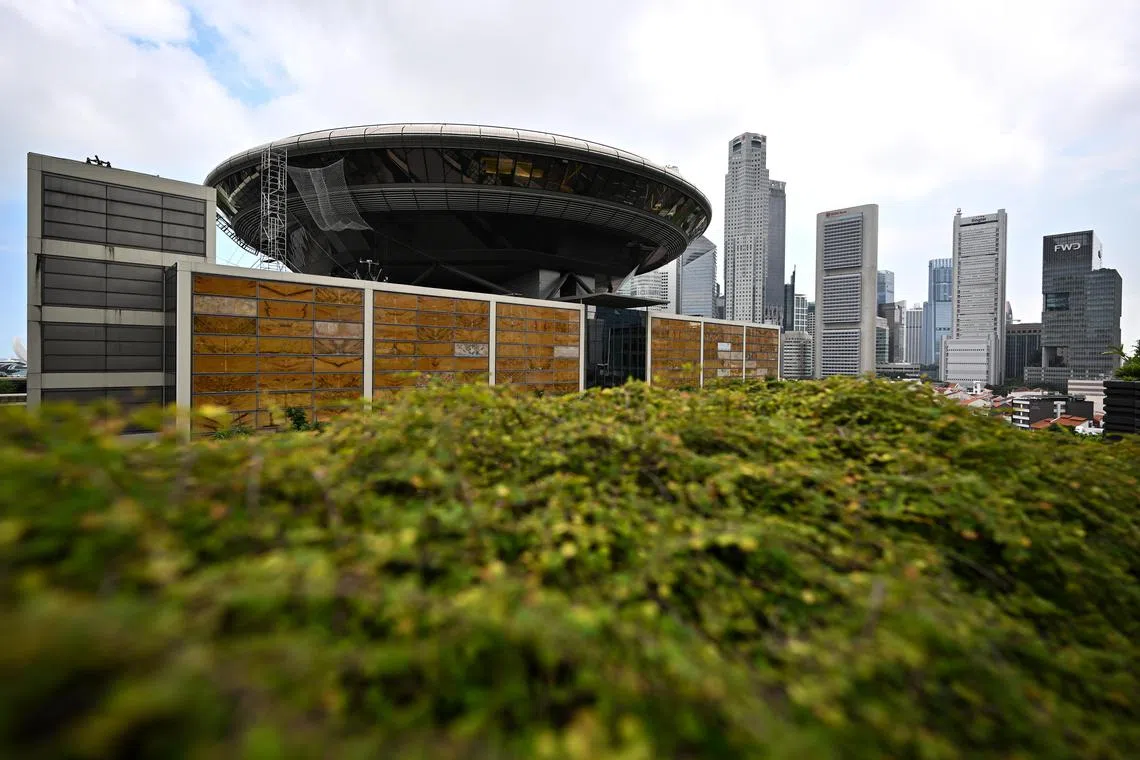Herbalife wins appeal against taxman over $2m in GST on products supplied to members
Sign up now: Get ST's newsletters delivered to your inbox

The High Court ruled in favour of Herbalife in the case, which involved how much products supplied by Herbalife are liable for GST.
PHOTO: ST FILE
SINGAPORE – Direct sales company Herbalife has won its appeal to the High Court against the taxman over the value of the products it supplies to its members on which goods and services tax is levied.
Herbalife sells nutritional supplements, weight-management products and other personal care products to its members at varying discount tiers, from the standard 25 per cent and up to 50 per cent.
The issue was not whether the products supplied by Herbalife to its members are liable for GST, but how they should be valued.
At contention in the case was whether the discounted rate should be taken as the value of the supply, as argued by Herbalife, or the open market value of the nutritional products, as argued by the Inland Revenue Authority of Singapore (Iras).
In a judgment on Monday, Justice Choo Han Teck ruled in Herbalife’s favour. He accepted Iras’ argument that Herbalife’s business model results in revenue leakage, but said the question is how it ought to be plugged.
The solution could be in a special valuation provision, such as that adopted in Britain’s Value Added Tax (VAT) Act, which specifically addresses business models akin to Herbalife’s. However, this is beyond the power of the courts in Singapore, and must be implemented legislatively, said Justice Choo.
Notices of assessment issued by Iras to Herbalife between Jan 1, 2012, and March 31, 2017, pegged the supplies at open market value.
The disputed amount of GST appealed was slightly under $2.2 million, inclusive of a 5 per cent late payment penalty.
Under its business model, Herbalife sells products only to members – at a discount – who in turn sell them to consumers at the full price, earning the difference as profit. Members move up the discount tiers as they accumulate volume points, which are credited for their own purchases as well as the purchases of the new members they refer to Herbalife, known as downlines.
Iras argued that if the members were GST-registered, the final sale to end-consumers would be taxable and GST levied on the full retail price without the tiered discount.
But because the members are not GST-registered, the only taxable supply is that between Herbalife and its members.
The taxman said having a non-taxable intermediary between Herbalife and the final consumer means the difference between the price at which the product is sold to the intermediaries and its final retail price is not taxed.
This results in the revenue leakage, which is addressed by Section 17(3) of the Goods and Services Tax Act, said Iras.
The provision states that if goods are supplied in exchange for a consideration, or payment, not wholly consisting of money, the value of the supply shall be taken to be its open market value.
Iras contended that the open market value is the retail price of the products less the standard discount of 25 per cent.
But Herbalife, represented by Mr Vikna Rajah, argued the provision does not apply.
He said a similar provision in Britain’s VAT Act was unable to bring to tax goods sold via a direct selling business model, thereby requiring the enactment of a special valuation provision.
Since this special valuation provision is absent in Singapore’s GST Act, he argued that there is a lacuna, or a gap, that has to be filled by Parliament.



